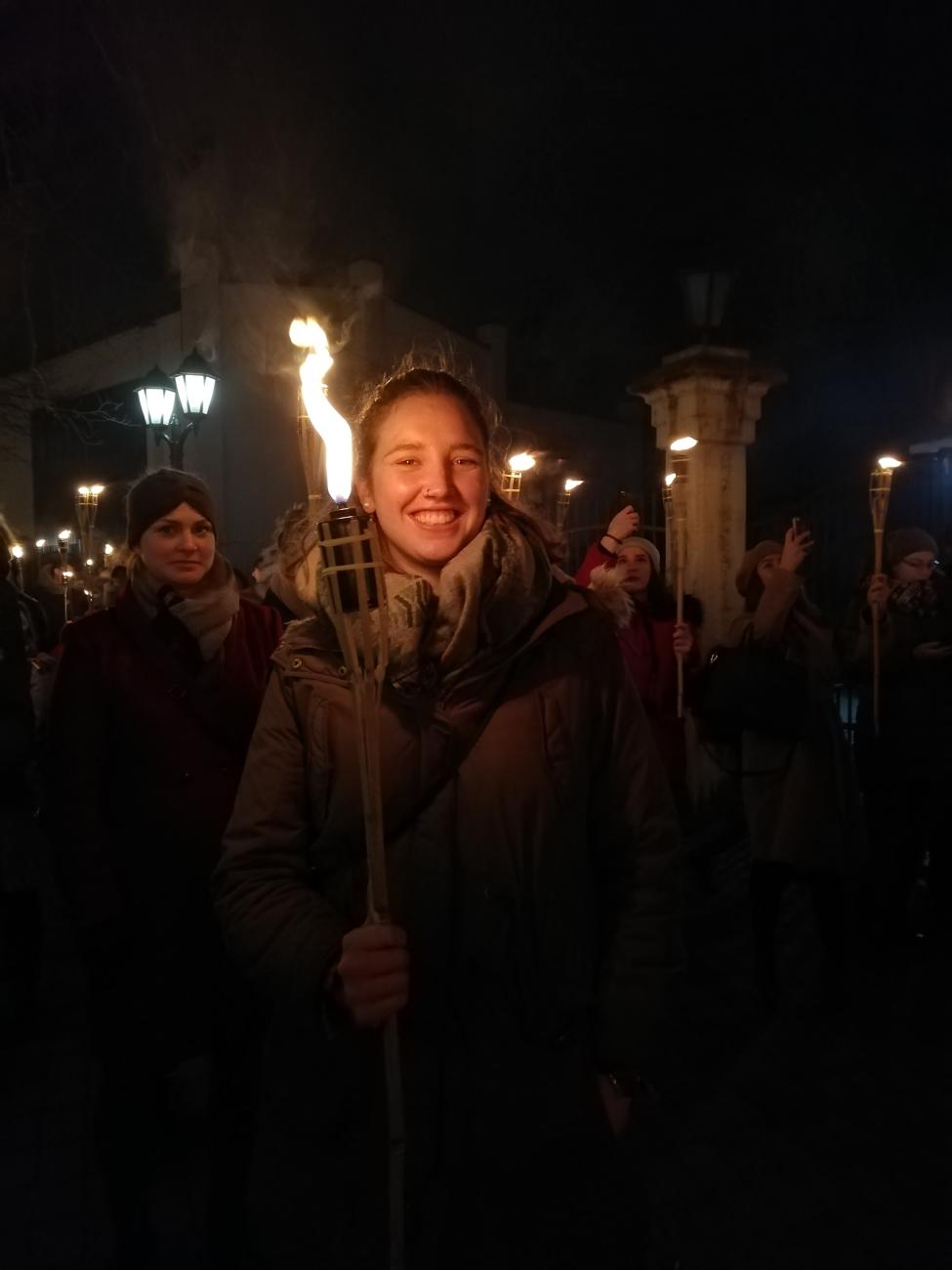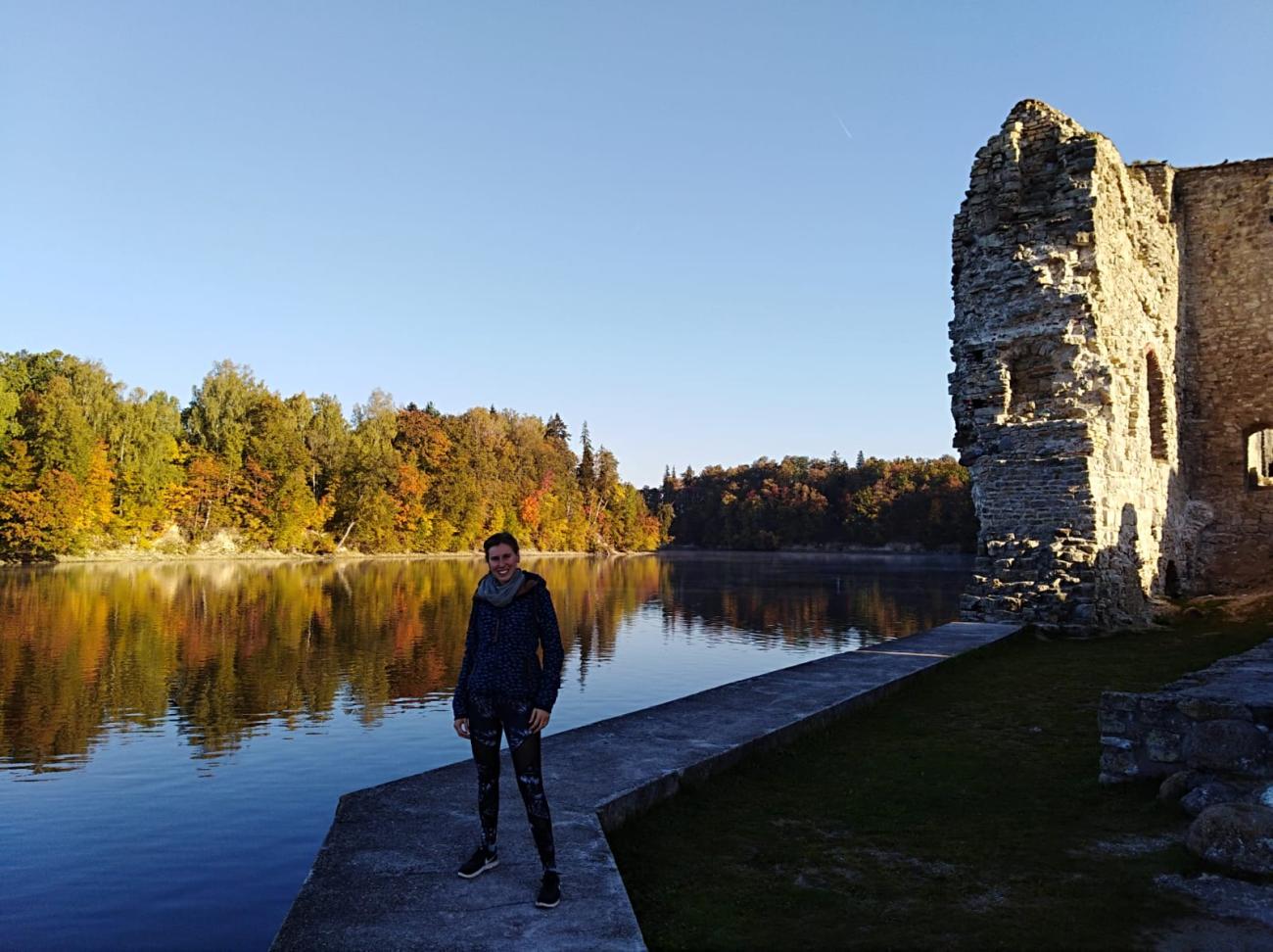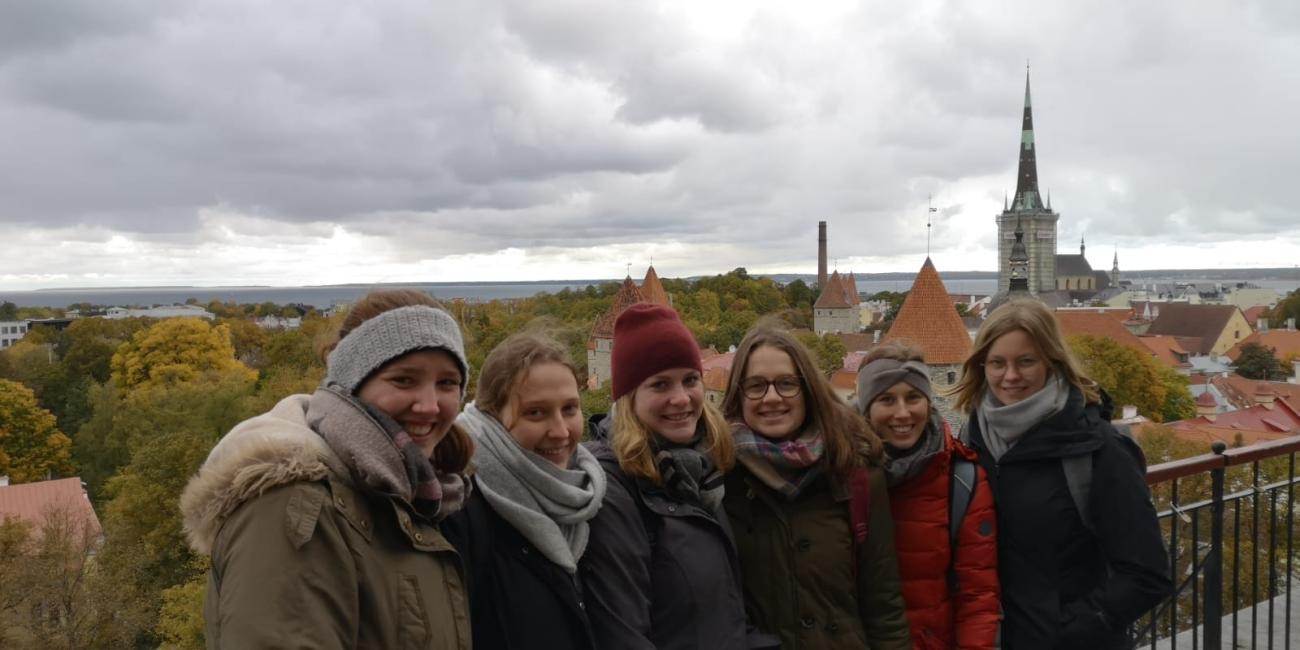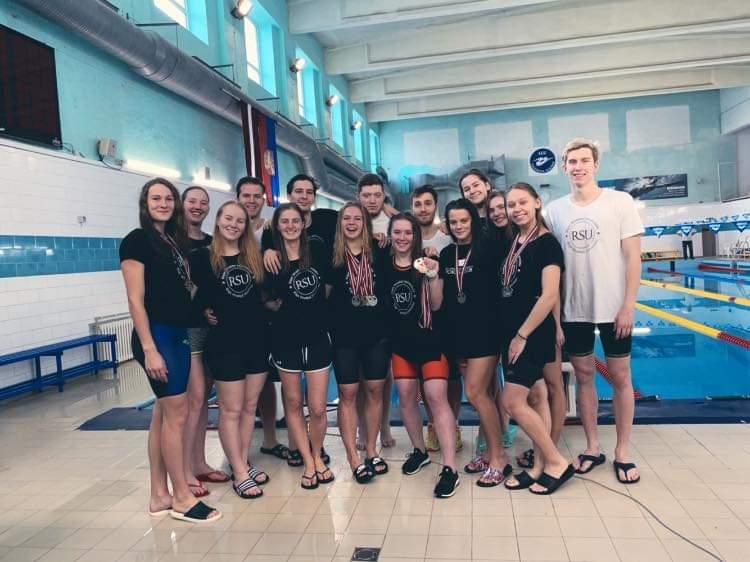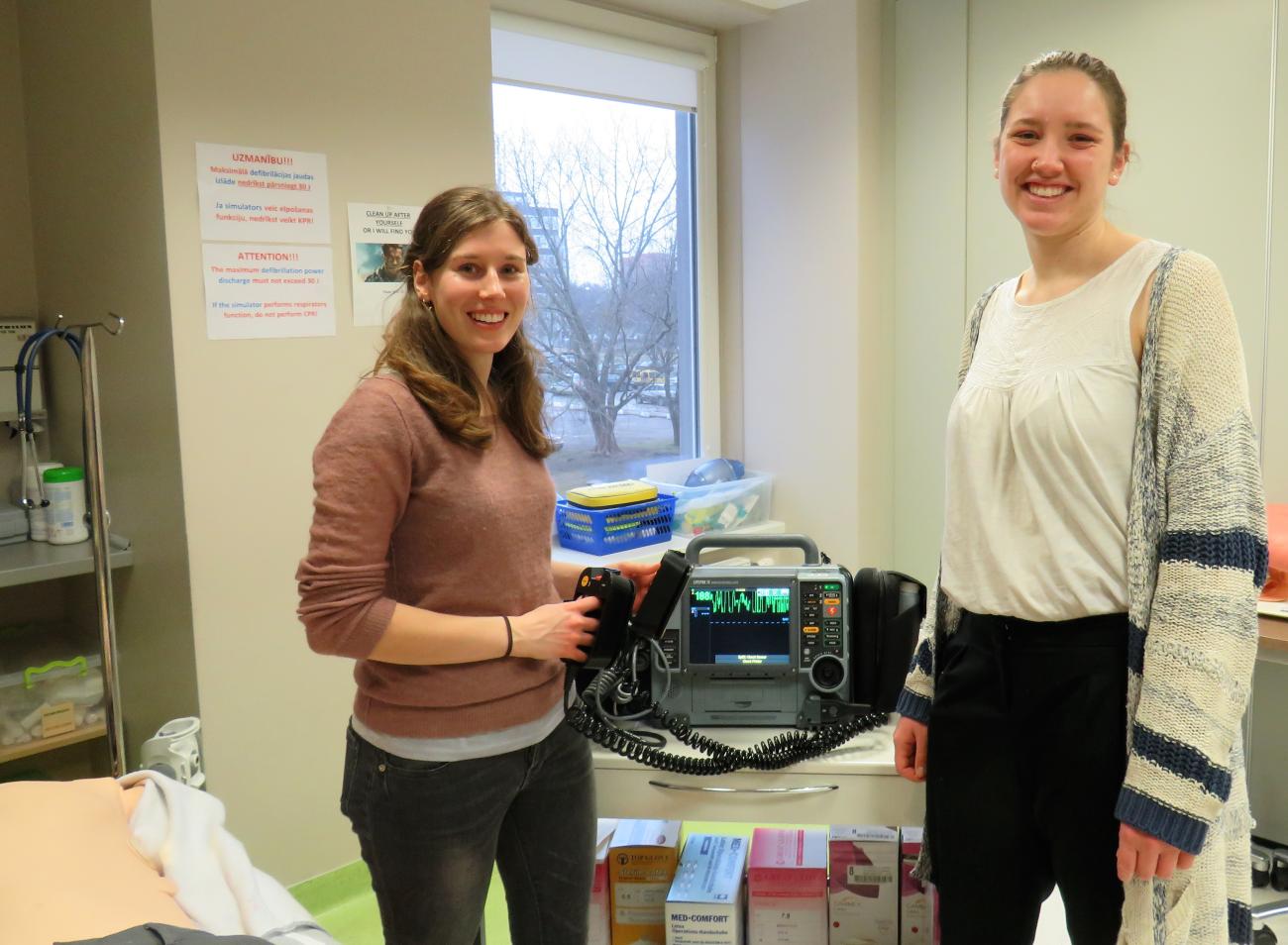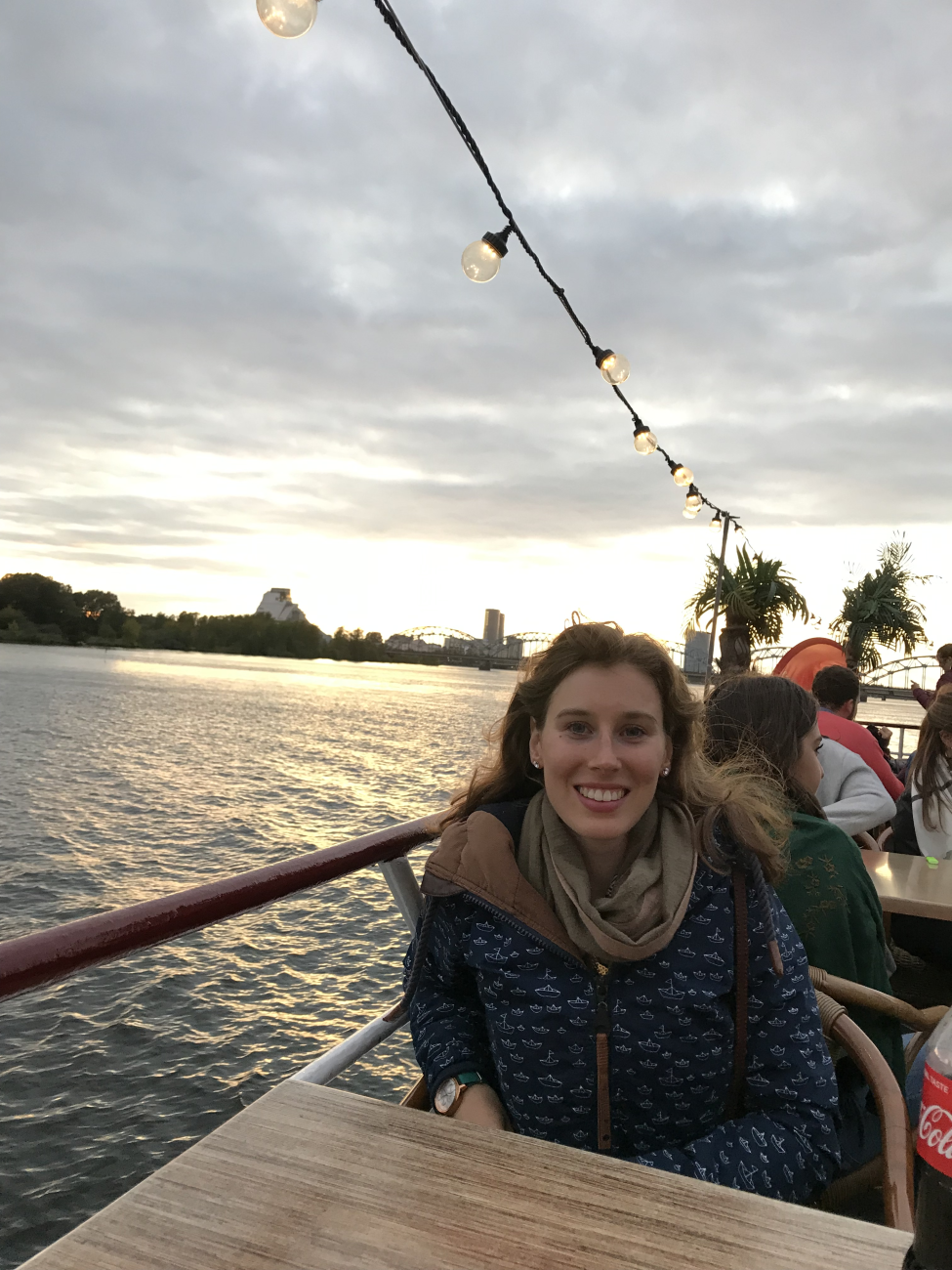Weaving Together Physics and Medicine: Erasmus Students Share Their Experience
By the time you will be reading this, Andrea Christina Schneider and Ronja Emely Friede will already be back in western Germany studying Medical Physics at their home university – Heinrich Heine University Düsseldorf (HHU). Their semester-long Erasmus visit paved a new path at Rīga Stradiņš University (RSU) since they were the first exchange students in the field of medical physics. This is great news for interdisciplinarity!
When Andrea and Ronja were still prospective applicants for the Erasmus+ 2019 autumn semester, they thought they would end up in the Medical Engineering and Physics bachelor's study program, which is implemented by both RSU and Riga Technical University. It worked out differently, however, and both physicists joined the Medicine study program instead. Andrea and Ronja took classes in physiology, medical technologies and other subjects together with prospective doctors and underwent an internship on simulation devices meant to improve clinical skills. This has changed the physicists’ outlook to have a more interdisciplinary mind-set, which is a great advantage according to them. ‘Blending into a class of 3rd-year medical students was hard, but we faced this challenge and will return to Düsseldorf with a broader professional outlook. Being multidisciplinary is a buzzword today, and rightfully so. A multidisciplinary specialist can work as the linking element between two people who are from different fields and who would get lost in translation without you,’ says Ronja who is considering studying biotechnologies for her master’s degree. Meanwhile, Andrea explains that she considered medicine before realising that medical physics would combine both of her interests. She has not regretted her choice and says that the semester she spent in Riga has given her a great close-up look into the medical field.
The cooperation between RSU and HHU grew out of staff mobility, when Assistant Professor Jevgenijs Proskurins, the Head of the RSU Department of Physics, went to visit Professor Thomas Heinzel, the Head of the HHU Institute of Experimental Condensed Matter Physics. They reached an agreement to collaborate and the first trailblazers – Andrea and Ronja – could come to Riga on an exchange. ‘Eventually this cooperation could turn into a two-way street and students in the fields of medicine, dentistry, rehabilitation, and public health could all benefit from this international academic exchange,’ says Assistant Professor Proskurins.
RSU is an active member of the Erasmus+ program – the university has welcomed more than 100 exchange students this academic year from partner universities in Germany, Austria, Portugal, Italy, Greece, Spain, France, and other countries. Erasmus+ was a planned and very much expected step in Andrea and Ronja’s path to a bachelor's degree. ‘I’ve been looking forward to my Erasmus+ exchange ever since I started studying. The Baltic countries were my priority because in a way it was out of my information bubble – I wanted to get to know this part of Europe,’ reveals Ronja. With conveniently located Riga as their headquarters, both students managed to make day trips by bus and train to other cities, like Liepāja and Jelgava, as well as to explore the Latvian countryside. They even went on longer trips to Vilnius and Tallinn. ‘Riga is so beautiful and I love that the sea and Mežaparks are within reach of the city centre,’ says Andrea. Ronja adds that going abroad for a while is the best choice one can make, and the only thing that could have been better would have been for a greater number of other nationalities to be represented among the Erasmus+ exchange students in Riga. ‘I would have wanted to speak more English, practice a bit of my Russian and Latvian and get to know people from other regions here in Riga. Instead, I met so many Germans that I almost felt like home,’ laughs Ronja.
Andrea refers to her semester in Riga as a very empowering experience. ‘Back home I still live with my family, but here I was all by myself. Being abroad is the best choice one can make, especially during the university years,’ she says. The only piece of advice they have for their successors is to travel and make as many contacts as they can, but to try to balance this with their academic life.
Related news
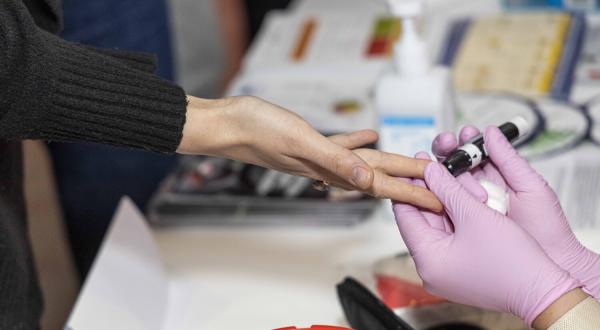 RSU Health Day attracts many first-time donors and large number of student research groupsFor RSU Employees, For Students
RSU Health Day attracts many first-time donors and large number of student research groupsFor RSU Employees, For Students
